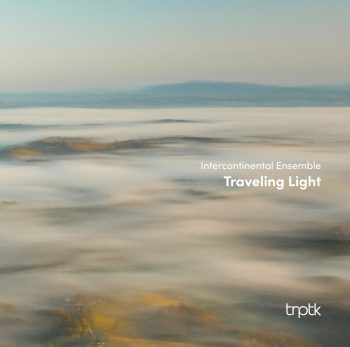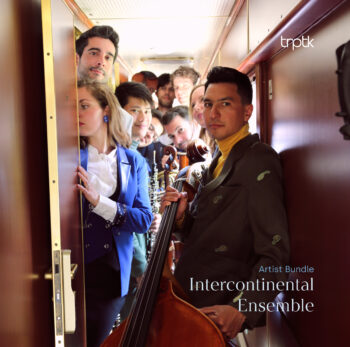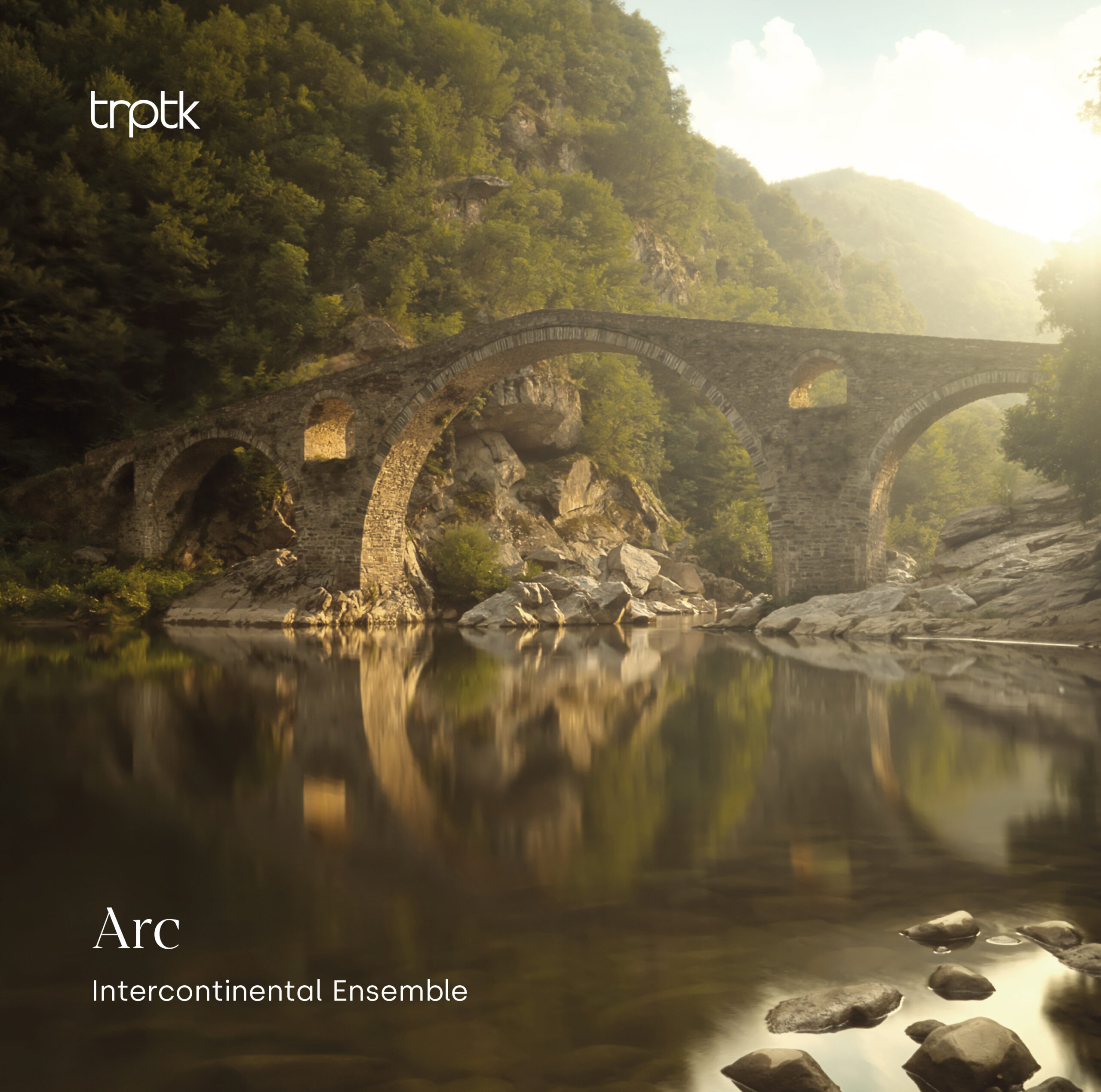Those of you who are familiar with our previous CDs know that we put a lot of thought into our album titles. This once again turned out to be a big challenge.
About the album
Those of you who are familiar with our previous CDs know that we put a lot of thought into our album titles. This once again turned out to be a big challenge.
Whilst Traveling Light alluded to the symphonic arrangements and our ensemble’s international backgrounds and In Motu described both our personal motivation as well as the common motor behind the three pieces on the CD, we knew from day one that this third CD was much more rebellious and difficult to place. It truly is a nightmare for our (as of yet nonexistent) marketing department.
The first thing that sprung to mind was the female aspect: this CD focuses on work by exclusively female composers, but to give the CD a name based on that simply felt too easy and raised more questions than it answered.
The biggest question was: Is there something deeper that connects these artists?
Each composer has mastered a different style, which means that creating a description of one work ended up being detrimental to another. Whereas one composer challenges the listener with new combinations, another gives familiar sounds new perspective. One piece gives the impressions of stylistic refinement, wherein another puts emotion front and centre. What makes it even more complicated is that many of these contradictions can even be found during the same piece.
It became more and more clear that this CD wasn’t about one specific feeling, style or thought. It was about the connection between the pieces various personalities which makes the individual pieces part of something bigger.
That’s how we came up with the title Arc, the shape in which bridges have been built for centuries and also the way in which character development is described in a story.
In terms of architecture, an arc is the shape which encompasses all of the same exciting contradictions as the pieces on this CD. It combines the playful, serious, fragile, strong, the unpredictable and the refined and combines these into a detailed character description of each composer.
What’s more, every piece tells a personal story that takes the listener along, and as every good story does, provides the listener with new insights that they didn’t have beforehand.
In retrospect, Arc is a great counterpart to our previous CD In Motu. A set of twins, of which one child, In Motu, plays outdoors all day, doing everything in his power to put anything he can get his hands on into his mouth whilst managing to get scrapes all over his body. The other child, Arc, is a dreamer whose powerful fantasy can create entire worlds and bring anyone willing along for the journey.
We hope that you’ll notice more and more connections between the pieces every time you listen to this CD, and that you can experience it as a kind of sonic kaleidoscope, which tells you new stories every time you listen.
Tracklist click to play/pause
-
Bianca Bongers
Collage van een achtvlak
7:297:29
-
Clara Schumann (arr. Ernst Spyckerelle)
Drei Romanzen, Op. 21
-
I. Andante
4:234:23
-
II. Allegretto
1:091:09
-
III. Agitato
4:274:27
-
-
Aregnaz Martirosyan
Emotional Diversity
7:487:48
-
Sarah Neutkens
September I
6:166:16
-
Louise Farrenc
Nonet in E-flat major, Op. 38
-
I. Adagio - Allegro
11:5511:55
-
II. Andante con moto
8:058:05
-
III. Scherzo. Vivace
4:544:54
-
IV. Adagio - Allegro
5:385:38
-
More information
| Label | TRPTK |
|---|---|
| Genre(s) | Classical – Classical (1750-1830) Classical – Romantic (1830-1920) Classical – Contemporary (> 1920) |
| Artist(s) | Intercontinental Ensemble |
| Composer(s) | Bongers, Bianca Farrenc, Louise Martirosyan, Aregnaz Neutkens, Sarah Schumann, Clara |
| Recording location(s) | Westvestkerk, Schiedam (NL) |
| Recording date(s) | October 2021 |
| Cat. No. | TTK 0080 |
|---|---|
| Release date |
December 8th, 2023 |
| Additional links |
"Bongers is known for preceding her compositions with a visual artwork; judging from the title of this piece, which she originally wrote for string quartet and then adapted into a version for nonet, she has done the same here. And what does an octahedron sound like? It sounds like this, you can hear her drawing the lines, coloring the surfaces. In "Emotional Diversity," the Armenian-born Martirosyan reflects on the conflict that broke out between Armenia and Azerbaijan in September 2020. The music, steeped in folk music is her beautiful response to this senseless conflict. And like all the other pieces on these two albums, it is equally beautifully voiced by this ensemble."
Ben Taffijn, Nieuwe Noten
"In Farrenc's somewhat better-known 1849 Nonet, the Intercontinental Ensemble really proves its mettle as demonstrated by a comparison with the recordings of the Consortium Classicum and the Ambach ensemble, which passed with flying colors."
Jan de Kruijff, Musicalifeiten
"With this new CD, the Intercontinental Ensemble once again shows that they play with an enormously intense and excellently coordinated verve. With wonderful interpretations of original works or harmonious arrangements by the violinist, they not only repeatedly offer a lively performances of existing pieces, but also give familiar works new perspectives and impressions by arranging them for their ensemble, so that one can rediscover seemingly familiar things. The realization, both in the instrumental and recording sense, also leaves nothing to be desired."
Uwe Krusch, Pizzicato
"While a number of things recommend Intercontinental Ensemble as a particularly distinguished case, two things above all else argue vehemently in its favour: the youthful enthusiasm with which its nine members invest their playing, and the maturity and exceptional calibre of musicianship they demonstrate in their performances."
Ron Schepper, Textura
"Positioning the new in relation the old, “Arc” leaves the listener with renewed respect for the courageous 19th-century women composers who overcame the restrictions of their times, and for contemporary women composers who respond creatively to the troubled conditions of our present age."
Mark Werlin, HRAudio
"Still more impressive is the sonic imagination of Arc from the Intercontinental Ensemble [...] a collection of chamber music by female composers which opens with the entrancing, Stravinskian textures and self-contained gestures of Collage van een Achtvlak by Dutch composer and cellist Bianca Bongers."
Peter Quantrill, Gramophone
"The Nonet, opus 38 by Louise Farrenc did not require any editing. It has a warm tone and is played with infectious fun."
Jenny Camilleri, De Volkskrant
Related products
-

Traveling Light
Intercontinental Ensemble
Spatial Audio Download
TTK0021 -

Artist Bundle: Intercontinental Ensemble
Intercontinental Ensemble
Spatial Audio Download
TTB0002 -

In Motu
Intercontinental Ensemble
Spatial Audio Download
TTK0071



